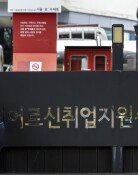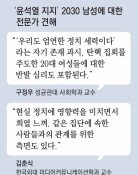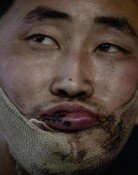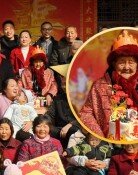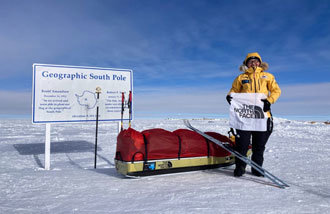<14> Fair Trade Commission Penalizing Unfriendly Newspapers with Hefty Fines
<14> Fair Trade Commission Penalizing Unfriendly Newspapers with Hefty Fines
Posted December. 17, 2007 18:22,
Bloody Retaliation on Newspaper Industry
The Roh administrations Fair Trade Commission has released 30 reports on newspaper companies. Most of them looked into newspapers and their delivery centers. It was unprecedented. The commission has never prepared and issued such a comprehensive and systematic report series targeted at a single industry.
Especially in September 2005, the commission issued press releases informing the public of its reward system for those who tipped off delivery centers suspected of having violated the legal reporting mandate.
The National Policy Committee of the National Assembly confirmed that the FTC granted 87% of its 2006 rewards and 99% of this years rewards to those who tipped off alleged wrongdoings by newspaper companies. Although the details have not been confirmed by the commission, the informants reportedly concentrated on digging up the alleged dirt of newspapers critical of Roh, such as Dong-A and Chosun.
The FTC has never fined newspaper companies except the three major critical voices with largest readerships, or Dong-A, Chosun and JoongAng. Thus, citizens and scholars have long suspected the real motivation.
Last year, the top ten national newspapers recorded an aggregate total of 1.7 trillion won in gross sales. And this figure occupied a meager 0.2% of last years gross domestic product 847.9 trillion won. In terms of market size, they were insignificant. Still, the commission has been employing bloody and oppressive tactics against the press. Even so, who has commanded and orchestrated these tactics?
○ Key Players in Press Oppression: Former FTC Commissioners Gwon Oh-seung and Kang Cheol-gyu
The Fair Trade Commission has spearheaded the Roh administrations oppressive policy toward the press, which was first hinted at in Rohs public speech in early August 2003.
Roh claimed, We will initiate a new legal system. Once its put in force, we will have a level playing field and our citizens can freely choose the newspaper they want. Then presidential spokesperson Yoon Tae-yeong explained that Roh referred to mandatory disclosure of readership and enhanced supervisory functions of the Fair Trade Commission, heralding the new supervisory role the commission would assume under Roh.
Two Roh-appointed FTC heads have been in constant conflict with the press, and more severely with the critical newspapers.
Testifying at the assembly hearing on November 1, 2006, incumbent FTC Commissioner Gwon Oh-seung raised eyebrows by saying, Advertisers call the shots and that is why newspapers cannot run fair articles. When lawmakers demanded an apology, Gwon snapped, saying, Its not worth any further comment. Late last year, he made public his hostility toward the press by saying, If a newspaper plays hardball, I will play hardball, too.
Prior to his new job, Gwon taught law at Seoul National University. In early 2003, when Roh was president-elect, Gwon presided over the wedding ceremony of Rohs daughter and one of his former students. The long-term Gwon-Roh personal relationship, many believe, must have something to do with Rohs appointment of Gwon to the job.
The same logic of personal connection also applied to the Roh administrations first FTC head Kang Cheol-gyu. Under the Kim Dae-jung administration, Kang served on a committee which first proposed the mandatory readership disclosure in 2001. And his anti-press sentiment was accelerated under Roh. When Roh took office and Rohs version of the mandatory regulation was completed, which allowed the FTC to directly interfere in the newspaper market, he orchestrated and supervised various researches to buttress the new policy.
○ Competition Law and Policy Bureau: Weapon for Execution of Oppressive Regulations
FTCs Deputy Commissioner Kim Byeong-bae constitutes one of the key players. Kim served in the Kim Dae-jung Administration as the spokesman for the commission. Roh promoted him to the head of the Competition Law and Policy Bureau, which is in charge of all research conducted on and against the press. As spokesperson, he confiscated the press passes of Dong-A correspondents in retaliation against Dong-As critical coverage of the FTCs press-smothering tactics.
Current bureau chief Kim Won-jun imposed heavy fines on the three critical newspapers Dong-A, Chosun and JoongAng based on his controversial computation of each companys readership.
He alleged that the readership determination was computed based on the copies that the delivery centers sold.
But the market has always determined the readership based on the number of copies each newspaper company sells to its delivery centers. Even the Fair Trade Commission agreed to it. Prior to the controversial new computing method, the commission acknowledged that the delivery centers were not subsidiaries of the newspaper companies, and therefore, it was wrong to sum up the fines on individual centers and to announce the sum as that of a newspaper company.
Defending the changed position, senior bureau supervisor Cho Hong-seon of the FTC said in a newspaper interview, To prevent free newspaper handouts, we have to prohibit newspaper companies from giving freebies to their delivery centers. The three newspapers, however, filed an appeal against the penalties imposed.
The supervising bureaus silly activities did not stop there. It waged a signature-gathering campaign last year in the name of the social good from eradication of the free copy practice.
Korean history had never seen a move like that before. No government agency had ever acted like a civic group. The FTC was not the only actor. Pro-Roh newspapers and TV stations waged the campaign, along with the government agency. But citizens criticized their biased, unprecedented policy tactics. Two incumbent senior commission members, Ju Sun-shik and Choi Mu-jin, led the effort.
○ Deliberate Leakage of Information to Ruling Party Members
Two presidents, Kim Dae-jung and Roh Moo-hyun, handsomely rewarded those who suppressed the press for them. The loyal fighters were promoted faster and higher than any other group of government officials. The FTC produced the largest number of beneficiaries, and drew the heaviest criticism.
Their loyalty has frequently crossed the legal line. In July 2004, for example, FTC senior official Park Beom-seo was caught handing over the agencys internal memorandum to a member of the ruling party. The memo analyzed the editorials of each newspaper and proposed the direction for future press policies. In response, the FTC explained that the memo only reflected the personal position, not the official position of the organization. But the public did not buy the excuse and continued to demand a responsible action. The FTC finally succumbed to the demand, and put Park on administrative leave. Park now works for the Ombudsman of Korea, the government agency to conduct investigations on improper practices and systems in the government . A senior official on the national economy team commented on the condition of anonymity, Its unbelievable, unethical and unlawful. If it had happened to me, I would have been fired a long time ago. But Park was a commission guy, and he survived it.
[Kim Dae-jung Tried to Tame Press with Unreasonable Fines]
In 2001, when Kim Dae-jung was president, the Fair Trade Commission tried to tame a couple of newspapers, including the Dong-A. Politically motivated and supported by Kim Dae-jungs inner circle, the FTC singled out and investigated critical newspaper companies, and the National Tax Service also launched tax probes into them. Experts and citizens understood the probes as an attempt to tame and threaten unfriendly newspapers.
At his New Year press conference in 2001, Kim Dae-jung stressed the need to tailor the press. Soon after his remarks, the commission announced that it would launch tax and other probes into the newspapers.
Prior to the conference, the FTC submitted to Kim Dae-jung a report entitled Clean Market Project which supposed various measures to clean up unfair practices in the six industries, including telecommunications. The report did not mention the newspaper companies at that time. After the submission to Cheong Wa Dae, however, the project was modified to target the critical voices.
The FTC conducted all-out investigations and fined 13 newspapers an aggregate total of 24.2 billion won. The Dong-A took the heaviest hit of 6.2 billion won, followed by the Chosun, 3.4 billion won, and the JoongAng, 2.5 billion won. In total, the three newspapers had to cough up 12.1 billion won, half of the total fines.
Just prior to Rohs taking office, the FTC revoked all of the fines issued in late 2002, indicating the decisions were wrong. South Koreans pointed their fingers to the hyper-loyalty of the government agency to its boss.
Then FTC Commissioner Lee Nam-ki, who directed and orchestrated the probes, resigned in March 2003 right after the inauguration of the Roh administration. And one month later, he went to jail for abuse of power. He reportedly pressured SK Group to make one billion-won donation to the Buddhist temple he attended. Nobody disputes Lee Nam-kis title of king of corruption.
Lee Nam-ki had his own man Heo Seon. Heo took charge of the anti-trust bureau under Lees leadership, and commenced the first probe into the newspapers in May 2004. He was promoted to the first degree position at the FTC, and retired last September. Now, he works for Yoon and Yang, one of the top law firms in Korea.
Another senior official, Cho Hak-guk, took charge of the public relations matters, while Lee Han-eok acted as a field officer in charge of the investigations. As a reward for his loyalty, Roh appointed Cho to a deputy ministers job. In September 2005, he retired and now works for another big law firm, Lee and Ko.
On the other hand, fair-minded officials had to endure agonizing years and disadvantages. FTCs Deputy Commissioner Kim Byeong-il did not cooperate fully with Kim Dae-jung-orchestrated probes into the newspaper companies. Considered as the best candidate for the next commissioner, he failed to get promoted and retired. Experts point to his fair-minded opposition to the politically motivated investigation as the reason.



